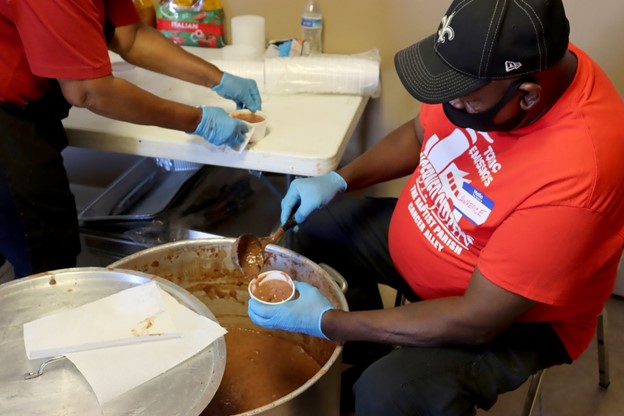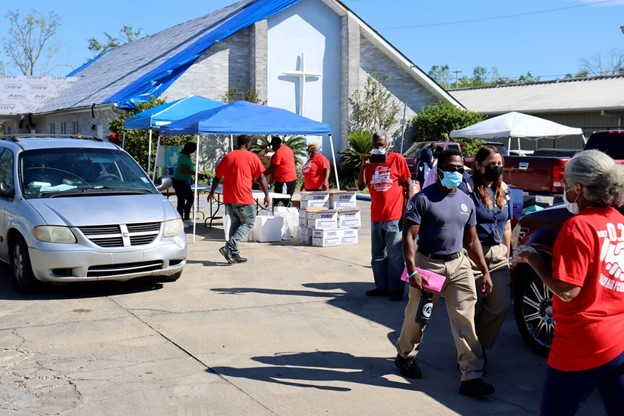Every day across the nation, community and faith-based organizations support people in need. It’s no different when a disaster strikes.
Because these organizations are so critical to a community’s resilience, FEMA recently held a virtual disaster preparedness brief with a cross section of national faith-based and community organizations to reinforce our commitment to working with these leaders who build and strengthen underserved communities. This event was an opportunity to connect on how the agency’s work can help advance a people first approach to disaster preparedness, response and recovery.
While FEMA prepositions personnel and commodities like food and water on the ground so we can respond as soon as possible after a disaster, we never do it alone. Non-governmental organizations, including those faith-based and community groups, share the agency’s goal of helping people, and have a deep understanding of survivor’s needs, vulnerabilities and cultural differences.
Non-governmental organization are critical to whole community recovery and resilience. Whether by providing a meal, connecting survivors with long-term recovery services or tending to their emotional, mental or spiritual needs, the work of these critical organizations supports survivors where federal assistance cannot.
FEMA Administrator Deanne Criswell emphasized the importance of partnering with faith-based and community organizations in helping communities nationwide face the challenges of increasingly complex and frequent disasters. Criswell spoke about the agency’s priority to stay engaged while supporting and empowering the work these organizations do. “It is our priority to lean forward and proactively build, strengthen and maintain these partnerships that are so critical to our nation’s resilience,” said Criswell. “Although FEMA is often first on the ground in times of disaster, it is organizations like yours who remain in the years that follow.”
Participants also heard from FEMA Associate Administrator for Response and Recovery Anne Bink, who discussed the agency’s progress on our equity, resilience and readiness goals. Bink also noted one way these organizations support survivors long after a disaster has passed. “There are certainly areas where FEMA assistance cannot reach survivors and that is where we look to our voluntary partners to really fill gaps and any unmet needs that may exist beyond the FEMA assistance that's provided to jump start recovery,” said Bink.
Additionally, participants heard from Small Business Administration (SBA) Office of Disaster Assistance Senior Advisor, Warren Miller who talked about the work SBA does to connect individuals, businesses, and private non-profits with assistance programs and improve disaster recovery outcomes and economic resilience.
Finally, leadership from FEMA Office of External Affairs provided an overview of upcoming FEMA initiatives for National Preparedness Month in September and the recently upgraded FEMA app, a personalized disaster resource to help you feel empowered and take charge of any disaster thrown your way. The FEMA app is free, and can be downloaded on iOS or Android mobile devices.
Want to learn more about how the support of voluntary organizations is key to a successful disaster response? Listen to the FEMA podcast episode “Role of Faith Based and Community Organizations in Emergency Management” which explores how leveraging the many strengths of neighborhood partners can ensure success before, during, and after disasters.

Reserve, Louisiana, Sept. 25, 2021 -- Volunteers put together hot lunches at the Tchoupitoulas Chapel in Reserve, Louisiana, to feed those affected by Hurricane Ida.

Reserve, Louisiana, Sept. 25, 2021 -- DHS Director of Faith Based and Neighborhood Partnerships Marcus Coleman and his team meet with the pastor and local volunteer organizations at the Tchoupitoulas Chapel in Reserve, Louisiana, to assist to assemble food and supply kits and boxed lunches for those affected by Hurricane Ida.


